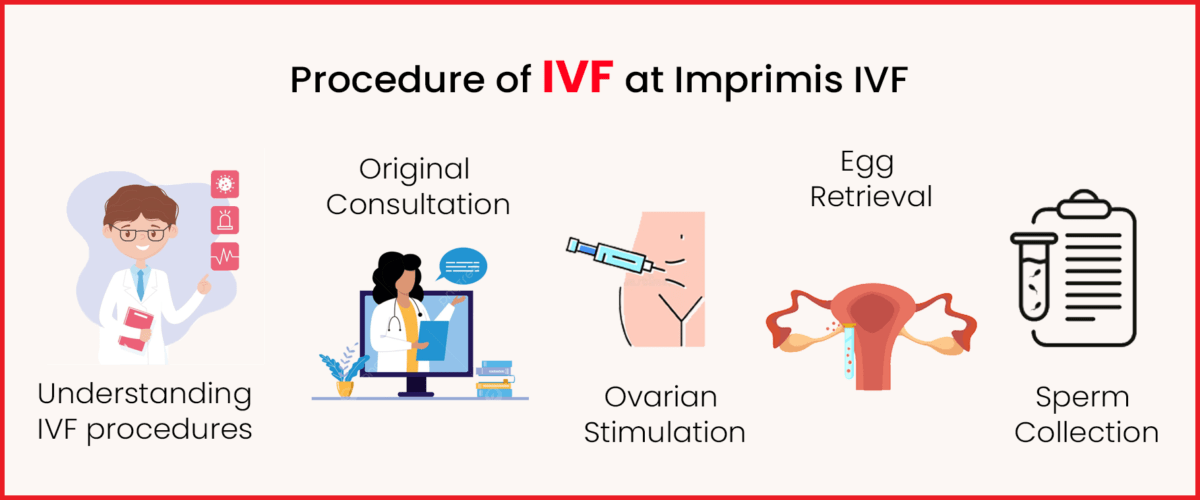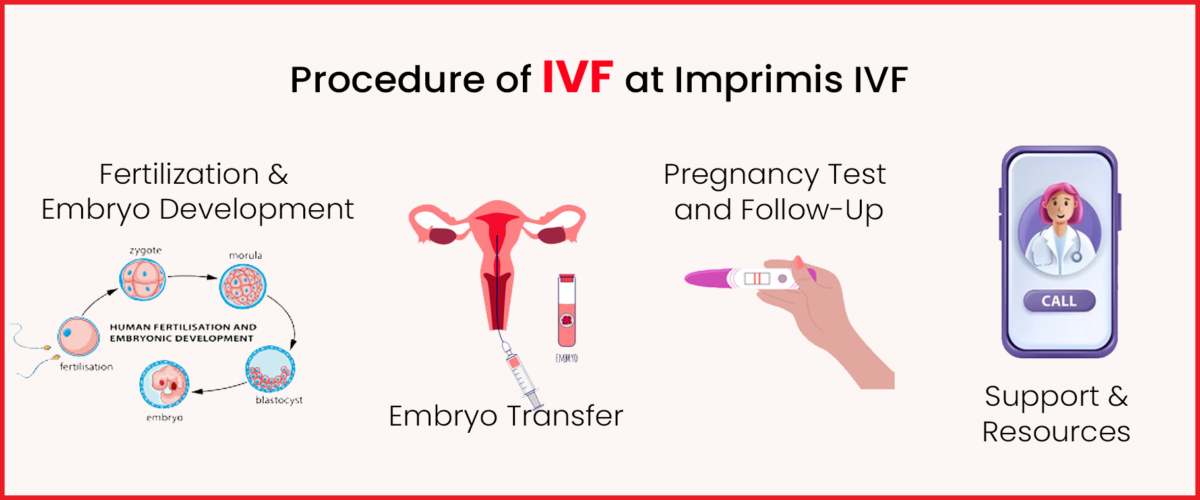What does Lupron do for IVF?
Medications are an integral part of the IVF treatment. Depending on the medical condition and other factors certain injections are administered to set the base for healthy development of the eggs. Lupron Injection is one such medication that is frequently administered before ovarian stimulation medications are given for a successful IVF treatment.
Another drug, hCG or Human Chorionic Gonadotropin, is also widely used for egg maturation. But Lupron tops the list as it is better tolerated by the body.
Lupron, lupride, or leuprolide acetate is a synthetic gonadotropin-releasing hormone agonist (GnRH-a). It is given to a woman at the start of the IVF treatment especially when there is a need to stimulate the ovaries to produce eggs in a controlled manner. Putting it simply, lupron helps control the development of eggs in the ovaries.
Why is Lupron injection needed?

To understand the need for Lupron injection we need to get down to the process of ovulation.
- During menstruation, the hypothalamus which is a part of the brain releases gonadotropin-releasing hormone ie. GnRH.
- This hormone sets the pituitary (another part of the brain) in motion to produce Luteinizing Hormone (LH) and the Follicle follicle-stimulating hormone (FSH) in the blood.
- These two pituitary hormones awaken the ovary every month to produce an egg for fertilization, secrete estrogen, and ovulate.
So, when Lupron is injected into the body regularly it mimics the structure of GnRH and triggers the production of pituitary hormones FSH and LH.
Initially, the pituitary glands fail to recognize the difference between GnRH and lupron (GnRH-a). However, with the regular administration of lupron, the pituitary glands become alert to this foreign element. As a result, the pituitary glands cap the production of both FSH and LH. The secretion of these hormones keeps on reducing as long as lupron injections are administered. This condition is termed pituitary down-regulation. In simple terms, it can be stated that Lupron helps reduce the secretion of these hormones.
But why is it important to control the secretion of these hormones during IVF? Aren’t these hormones important for conception?
Lupron is administered to the woman to limit the secretion of certain hormones to prevent early or premature ovulation during IVF. This helps in the development of multiple mature eggs in the ovaries. As soon as this condition is achieved the ovaries and the reproductive system are ready to respond positively to other medications that are administered for a successful IVF cycle. Ultimately, fertility experts gain more control over the ovulation timing, the egg retrieval process, and the implantation timing.
After embryo transfer, lupron ensures a healthy environment for its development free from any hormonal fluctuations. Hence, increasing the chances of success of the IVF cycle.
That’s just one part of the story of Lupron. It also has other significant roles to play in an IVF cycle like:
- Leuprolide acetate is also administered to stimulate the ovaries.
- Also, it can be used as a trigger to assist with the complete maturation of the eggs for IVF. This is referred to as Lupron Trigger.
- As the ovaries are also responsible for the production of estrogen and progesterone, Lupron indirectly helps regulate their secretion.
- Lupron also finds application in the treatment of endometriosis, prostate cancer, and large uterine fibroids.
- It plays a vital role in treating CPP which is central precocious (early) puberty in children.
The Lupron Protocol during IVF
It is generally given daily for 2-3 weeks before the process of ovarian stimulation begins. However, the duration depends on your medical reports and your body’s requirements. The Lupron medication kit generally contains 14 injections (for 2 weeks) and 2.8 ml of Lupron in the form of Leuprolide acetate. Typically fertility specialists administer Lupron in three phases which are stated below:
Phase 1
This phase generally starts one week before the ovarian stimulation process. The Lupron administration process begins as soon as the natural ovulation is completed.
Phase 2
The administration of Leuprolide acetate will carry on. But in phase 2 the fertility experts cut down on the dosage in comparison with phase 1.
Phase 3
This phase sets in 36 hours before the egg retrieval process. The dosage is discontinued before the hCG trigger shot is administered for final egg maturation.
After some days of regular Lupron shots, FSH injections will also become a part of the IVF journey. You will have blood tests and ultrasound to monitor the entire process.
Lupron Injection Side Effects

More than anything else, keeping your stress levels in check is the first step towards a successful IVF cycle. However, experiencing side effects at the start of your IVF journey can quickly switch on the panic button. So, it’s always better to know all the common side effects associated with a medication to stay calm during IVF. Lupron injection is accompanied by several short-term side effects mentioned below:
- Erratic mood swings
- General body aches
- Upset stomach
- Vaginal dryness
- Headache
- Vomiting and nausea
- Hot flashes or night sweats
- Edema
- Weight gain
- Body and face acne
The secretion of pituitary hormones is reduced to the same level as is witnessed during menopause (the time when a woman no longer has a monthly menstrual cycle). This means your body is pushed into a state of temporary menopause. So, you may have lighter or no periods during this phase.
Other symptoms during the initial days include:
- Breast tenderness
- Abnormal fluid retention
- Joint pain
- Fatigue
- Dizziness
- Anxiety
- Tingling
- Itching or swelling at the injection site
- Decreased libido
These symptoms vanish once Lupron usage is discontinued.
In case, you suffer from excruciating pain or any other extreme side effect consult with your gynaecologist at the earliest.
How is Lupron Injection Administered?
Lupron injection is generally administered into the fatty tissue present just below the skin either in the form of daily injections or as monthly intramuscular depot injections using a small needle. It can be administered by the medical expert at your fertility clinic or you can also do it yourself at home by following the below-mentioned steps:
- Wash your hands thoroughly and properly sanitize the surface where you will lie down.
- Take a clean syringe and fill the Lupron medication into it. Always ensure that there is no air in the vial containing the medication.
- Select a spot on the abdomen about two inches from your navel.
- Hold the syringe at an angle of 45 degrees from the injection site.
- Empty the contents of the syringe quickly.
Lupron injection can also be administered on the outer region of a woman’s thigh. As far as storage of Lupron injections is concerned, they generally don’t require refrigeration. However, it is for the best that you strictly follow your doctor’s guidelines.
Imprimis IVF advises you to visit your fertility expert to get your Lupron injections. Once you feel confident enough go for self-administration. Do not miss out on any of the steps mentioned above every time you take your Lupron dose.
Frequently Asked Questions
Does Lupron increase IVF success?
Well not directly. IVF success rates depend on a plethora of factors. Some of them include the age of the woman, the quality of both the egg and the sperm, medical history, genetic conditions, and the expertise of your fertility specialist. However, proper and timely administration of Lupron will lay a robust foundation for other medications that play a vital role in IVF success rates.
Is Lupron always given during IVF?
No. Even though it is one of the best options available when it comes to ovulation regulation, Lupron is not always given during IVF. Doctors have a variety of options available in the form of agonists and antagonists to choose from and reduce the production of FSH and LH. hCG or human Chorionic Gonadotropin is seen as an alternative to Lupron. However, Lupron is seen as the better option because it is more tolerable than the former.
Final Word
IVF is a complex and delicate procedure in all dimensions. Not only the technology but also the medications administered before the treatment starts need to suit the woman’s body and meet some requirements for the treatment to proceed smoothly.
Lupron is one such medication that doesn’t directly affect the success rate of IVF but sets the base for the treatment to proceed efficiently and offer promising success rates.
If you have any queries regarding Lupron, other medications or anything related to IVF treatment feel free to visit us at Imprimis IVF, Srinagar.





